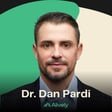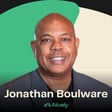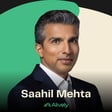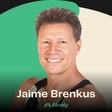
Rest And Recovery with Endurance Athlete Eric Hinman - E43
Are you stuck in a cycle of training that leads to missed milestones and endless fatigue? Many fitness enthusiasts overlook the critical role that rest and recovery play in improving performance and achieving fitness goals. Instead of allowing our bodies to recover and adapt, we push harder, risking burnout and injury. In this episode, we delve into an endurance athlete's routine and strategies for optimizing training with effective recovery practices.
Eric Hinman is a hybrid athlete, creator and entrepreneur. A formidable force in the world of triathlons and Ironmans, Eric has learnt how to leverage the philosophy of "slow down to speed up" to optimize endurance without succumbing to overtraining. Known for his approach to balancing intense fitness pursuits with recovery and lifestyle practices, he is also an advocate for the benefits of sauna and cold plunge routines. Eric actively shares his insights on health through various platforms and has collaborated with acclaimed brands such as Slate, Ice Barrel and Ten Thousand. His holistic approach to fitness and wellness embodies the integration of physical, mental, and social aspects for a sustainable, vibrant lifestyle.
“If you can get everything in unison or really close to unison, that's when you're gonna be firing on all cylinders and you know you're gonna avoid injury.” - Eric Hinman
In this episode, you will learn:
- The counterintuitive approach of slowing down to speed up in endurance training and its transformative impact on performance.
- How Eric transitioned from Ironman triathlons back to CrossFit, redefining his fitness routine to enhance anaerobic capacity.
- Essential tools and equipment for home workouts, including the benefits of mixing aerobic conditioning with strength training.
- The role of rest and recovery, including the benefits of sauna, cold plunge, and proper sleep hygiene for optimizing performance and well-being.
- The importance of community and social connection in fitness, combining wellness activities with communal experiences to foster deeper bonds.
- Insights into nutrition principles focusing on single ingredient foods and the strategic balance of protein, carbs, and fats throughout the day.
Resources
- Connect with Eric on Instagram: https://www.instagram.com/erichinman
- Subscribe to Eric’s bi-weekly newsletter, “The Movement Memo”: https://the-movement-memo.beehiiv.com/
- Shop all the products Eric mentions in this episode: https://alively.com/products/eric-hinman
This podcast was produced by the team at Zapods Podcast Agency:
https://www.zapods.com
Find the products, practices, and routines discussed on the Alively website:
https://alively.com/



















